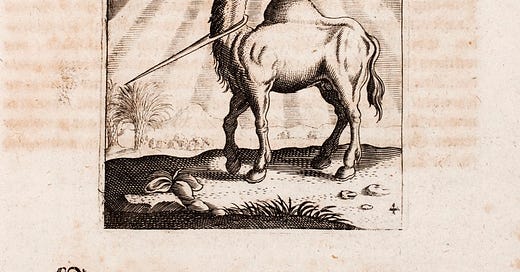A big question, if not the big question, for Christians is: why does Christ denigrate wealth and power? The most popular answer today is that wealth and power make men evil and are evil themselves. We have been influenced not only by communism and “egalitarianism” but also by that Lord Acton quote “power tends to corrupt and absolute power corrupts absolutely.”
But there is another reason to denigrate wealth: wealth is either an unserious pursuit or a pursuit that is necessarily a subordinate pursuit. That is, it could be that Christ denigrated wealth because the meaning of life is so much more than wealth or worldly “success.” In this reading, the quote “power shows the man” is more appropriate. No wise man ever doubts the difficulty of combining justice and might, of being wealthy and good. All too often a man is not equal to the wealth or power he acquires; too often he is ruled rather than ruler, ruled by the power to be ruler. We ought not allow ourselves to be destroyed by sin or lose power in the pursuit of power.
Secularization. True liberalism grows out of the latter interpretation of Christianity and communism out of the former. It is not true to say that communism is secularized Christianity, but that both liberalism and communism are secularized versions of Christianity. So, nor is it true to say that liberalism is a regime that wants to become communism, that the inner-dialectic of liberalism leads to communism. Misinterpretations of Christianity and liberalism are possible, and impoverished men are tempted to these misinterpretations.
There is this difficulty for Christianity. The latter interpretation suggests that virtue is for the few; that it is difficult to be good. Many Christians believe that everyone can be good, or that it is easy to avoid being wicked: the notion of free-will seems to invite the claim that there is always a genuine choice, with both “choices” being equally within a man’s power.
Liberalism is the result of one solution to this problem and I will have to explain that elsewhere. Or: secularization is what happens when a belief in the freedom of the will is replaced by a belief that our circumstances and societies severely limit what choices are available to each man. Communism developed from the view that no poor person has a genuine choice and this means the rich ought to be killed. Liberalism likewise grew out of the idea that no poor person has a genuine choice, but the liberal view is that poverty ought to be eliminated and the poor limited through an agricultural economy and representative government. The liberal did not seek out evil men or a “moral solution” to the problem, preferring instead to attack the problem as if it were a matter of ill-fortune rather than “oppression.”
Just because there is a true interpretation of liberalism that saves it from communism does not mean that liberalism can be saved from communism. Sometimes the lower element comes to preponderate, and its power becomes insurmountable. Liberalism in this situation calls for a new regime to preserve its ideals. Every good regime is an attempt to preserve man’s divine character as the being that is capable of faith and knowledge. The true liberal is liberal for this reason and not because he believes representative government is the only truly legitimate form of government.
Christianity is the religion that recognizes man’s divine character; it is often molded to a regime but should always outlive it. However, the ease with which Christianity lends itself to misinterpretation should not be overlooked. God is “the hidden god.” The healthiness of America and the West generally made being a Christian easier because malicious interpretations were little countenanced. Just as danger increases the opportunity for courage, the poverty of our time presents us with an opportunity to counter false love with hard words.
All our dignity consists, then, in thought. By it we must elevate ourselves, and not by space and time which we cannot fill. Let us endeavour, then, to think well; this is the principle of morality.


